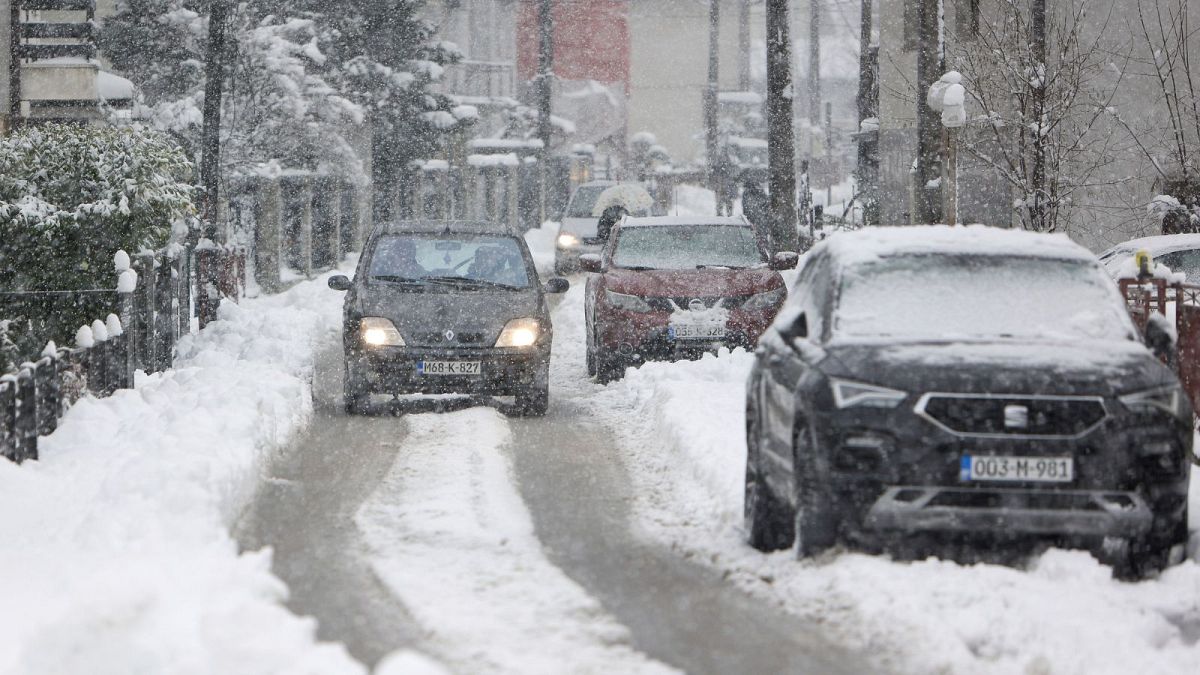Ukraine is closer to NATO than ever, Mark Rutte says during Kyiv visit

In an unannounced trip to Ukraine’s capital Thursday, the new NATO secretary general reiterated the alliance’s pledge to continue bolstering military and financial support for Ukraine.
New NATO chief Mark Rutte decided to visit Kyiv Thursday in his first trip since taking office, where he promised continued support for Ukraine in fighting against Russia’s invasion.
Once in the Ukrainian capital, Rutte met President Volodymyr Zelenskyy as air raid sirens went off twice.
He was quick to point out that the unannounced trip was his fifth since Moscow’s full-scale invasion in early 2022, adding that he wanted to come straight to Ukraine at the very start of his mandate.
Rutte reiterated the alliance’s unwavering support, saying, “Ukraine is closer to NATO than ever before.”
“Your fight for freedom reflects Europe’s values,” Rutte said, adding that it was a “priority and privilege to take support for Ukraine forward.”
The freshly inaugurated head of the alliance vowed when he took office in Brussels Tuesday to help shore up Western support for Ukraine, which has recently been on the defensive due to a relentless Russian army push in eastern regions.
Rutte expressed confidence that he can work with whomever is elected president of the US, the alliance’s most powerful member, in November — a key moment for Ukraine’s effort to ensure continuing Western support.
Zelenskyy said he discussed elements of Ukraine’s so-called victory plan with Rutte before a NATO meeting at the German Ramstein air base next week.
The two also discussed the battlefield situation and the specific needs of Ukrainian military units. Zelenskyy reiterated that Ukraine needs more weapons, including long-range weapons.
When asked about the prospects for NATO membership for Ukraine, Rutte said recent steps taken by NATO together “build a bridge to NATO membership,” including €40 billion of funding assistance, bilateral security agreements between allies, and the formation of a new NATO command to coordinate assistance and training.
What to do with glide bombs?
Rutte arrived after a Russian glide bomb struck a five-story apartment block in Kharkiv, Ukraine’s second-largest city, injuring at least 12 people, including a 3-year-old girl, local officials said Thursday.
The bomb hit between the third and fourth floors of the building on Wednesday night, igniting blazes, Kharkiv regional Gov. Oleh Syniehubov said. Firefighters searched for survivors through smoke and rubble.
The city of Kharkiv, located around 30 kilometres from the Russian border, has been a frequent target of aerial attacks throughout the war against Russia, which is now deep into its third year.
Glide bombs have become an increasingly common weapon in the war. They have terrorized civilians and bludgeoned the Ukrainian army’s front-line defences.
They were a key weapon in Russia’s capture of the tactically significant town of Vuhledar on Wednesday, as Russian forces wreaked destruction on the eastern Donetsk region and forced weary Ukrainian troops to withdraw from obliterated towns and villages.
Zelenskyy said the latest Kharkiv attack highlighted the urgent need for increased support from Ukraine’s Western allies.
Russia has had the battlefield initiative since late last year, when a Ukrainian counteroffensive petered out. Ukraine is grappling with a critical manpower problem on the front line and is straining to hold back Russia’s grinding assaults.
Though Russia’s battlefield gains have been incremental, its steady forward movement adds up as the Ukrainians are pushed backwards and yield ground.
World News || Latest News || U.S. News
Source link



